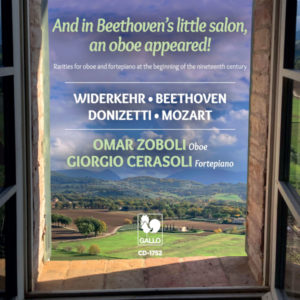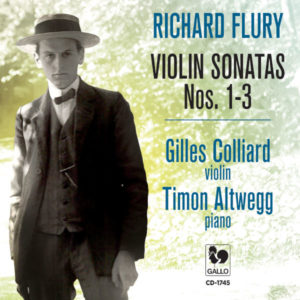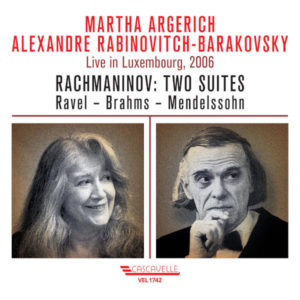Extraits / Excerpts
Jean-Perrin, Komponist und Performer - Ein Leben am Klavier
Jean PERRIN:
4 Intermezzi, Op. 29
No. 1 Andante tranquillo senza rigore
No. 3 Adagio
Jean Perrin, Klavier.
Horn Sonata, Op. 7
I. Grave. Adagio ma non troppo
II. Allegro ben cadenzato
III. Andante ben moderato ma con moto
Jozsef Molnar, Horn – Jean Perrin, Klavier.
Cello Sonata, Op. 11
I. Allegro moderato e ben marcato
II. Adagio
III. Allegro vivo
Jean de Spengler, Cello – Jean Perrin, Klavier.
Flute Sonata, Op. 12b
I. Allegro non troppo
II. Adagio
III. Allegro vivo
Pierre Wavre, Flöte – Jean Perrin, Klavier.
Secundum Paulum
Hans-Peter Graf, Tenor – Curzio Petraglio, Klarinette – Emmanuelle Goffart, Cello – Jean Perrin, Klavier.
A LIFE SPENT AT THE PIANO
All his life, Jean Perrin will nurture an intimate connection with the piano. As a child, he could hear his mother Julia and his uncle Charles Rathgeb playing. Very early, he attended concerts, listened to the greatest pianists of his time (his favorites being Wilhelm Backhaus, Alfred Cortot and Edwin Fischer); with the two latter he will even have the privilege of working, having won the Geneva International Contest in 1943.
Among the members of the jury, there were Nikita Magaloff, Edwin Fischer and Dinu Lipatti. Jean Perrin will then teach the piano both in Lausanne Conservatory as well as Sion, where he will have the master classes in 1949.
Beforehand, Jean Perrin had undergone very serious training under the supervision of Geneviève André-Court, whom he respectfully called a “highly cultivated lady“. Then he was a pupil in Charles Lassueur’s Virtuosity Class.
Jean Perrin will keep on progressing under the tutelage of the great pianist Franz-Josef Hirt, whose native town was Basel but who had settled in Bern (1899-1985). The pianist was a disciple of Busoni but also Petri and Cortot. Franz-Josef Hirt will considerably help the young artist to develop his means in view of the Geneva Competition ahead. At that epoch, Jean Perrin was also able to rely on the advice of Yves Nat in Paris (in 1947).
- Kategorien
- Komponisten
- Interpreten
- Booklet














